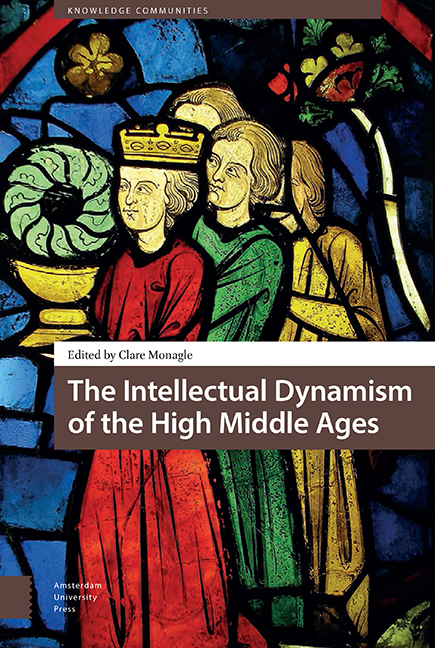Book contents
4 - Words of Seduction: A Letter from Hugh Metel to Bernard of Clairvaux
Published online by Cambridge University Press: 16 July 2022
Summary
Abstract
The first and longest letter in the collection left by Hugh Metel (d. c 1150), an Augustinian canon of St. Léon, Toul, in the region of Lorraine, to Bernard of Clairvaux, promotes our understanding of geopolitical, religious, and social dynamics between Burgundy, Rome, and the Holy Roman Empire in the first half of the twelfth century. Based on this lengthy letter, Hugh Metel proves himself to be a self-aware writer, well-versed in the epistolary and social developments of his age, and engaged in the same social milieu as Albero of Montreuil and Bernard of Clairvaux and much more involved in the political and religious milieu of the mid-twelfth century than his relative obscurity today might lead us to believe.
Keywords: Hugh Metel, Bernard of Clairvaux, Albero of Montreuil, Epistolary Epistemology, Religious Politics
Hugh Metel (d. c. 1150), an Augustinian canon of St. Léon, Toul, in the region of Lorraine, has left us a collection of 55 letters and several poems. They are preserved in a manuscript belonging to the Benedictine abbey of Saint- Arnoul, Metz, copied sometime in the second half of the twelfth century. This manuscript, transferred to the Collège de Clermont in the seventeenth century and now in Berlin ( Deutsche Staatsbibliothek, Phillipps, 1694), provided the basis for what is still the only printed edition of the letter collection as a whole, published by Charles Louis Hugo in 1731 within the second volume of his Sacrae Antiquitatis Monumenta. Hugo's edition was unknown to abbé Migne when he reprinted Mabillon's edition of just four letters of Hugh Metel, as an appendix to the writings of Bernard of Clairvaux within the Patrologia Latina. Given the rarity of the 1731 edition, it is not surprising that Hugh Metel is largely unknown to literary and historical scholarship, a fact that Constant J. Mews and I are now working to rectify.
Relatively unknown today, Hugh Metel was very well-connected to major religious men of his time and he strove diligently to widen his networks through his letters. The two main avenues he pursued were correspondence with influential men and involvement in contemporary issues, which he pursued with his remarkable rhetorical abilities and knowledge. Although he vehemently objects to rhetoric and language virtuosity, he seems to enjoy them in his own writing.
- Type
- Chapter
- Information
- The Intellectual Dynamism of the High Middle Ages , pp. 83 - 98Publisher: Amsterdam University PressPrint publication year: 2021

